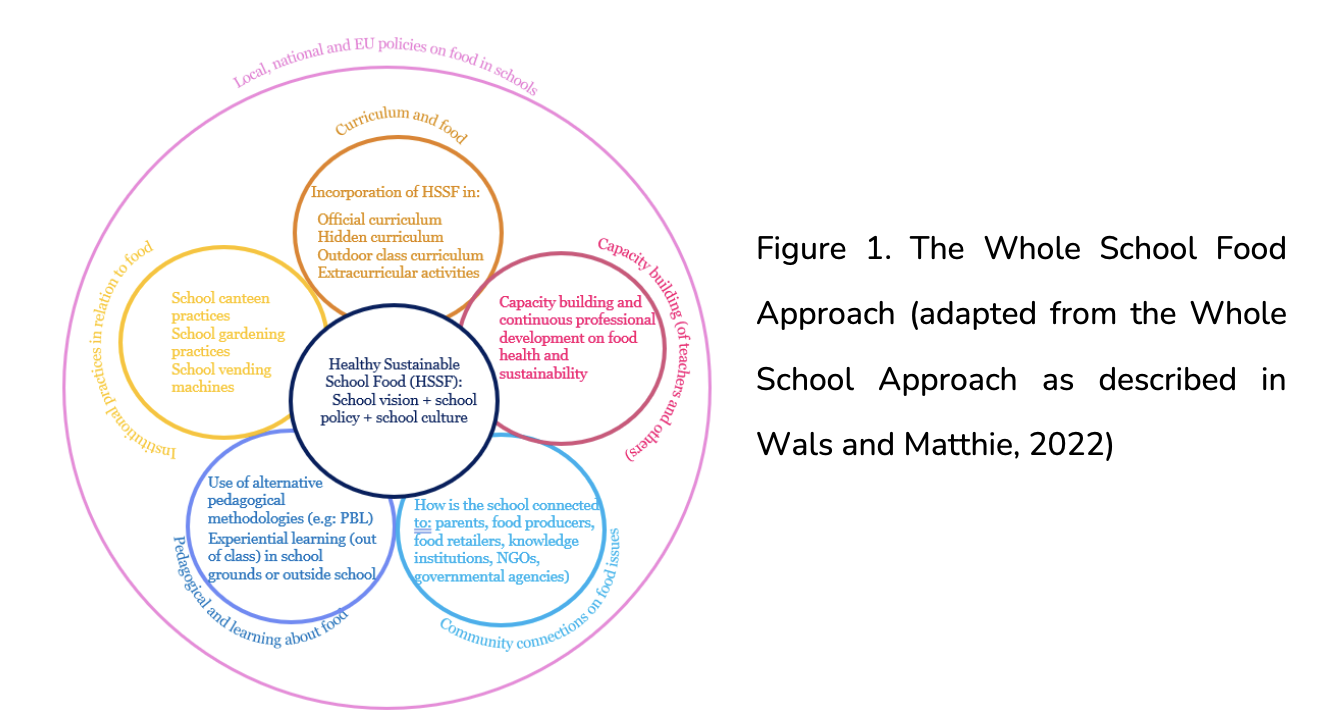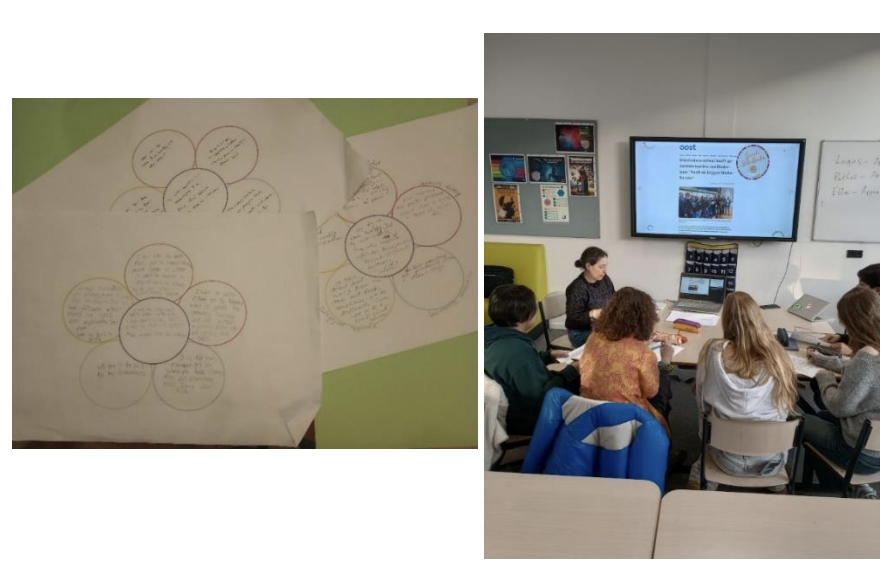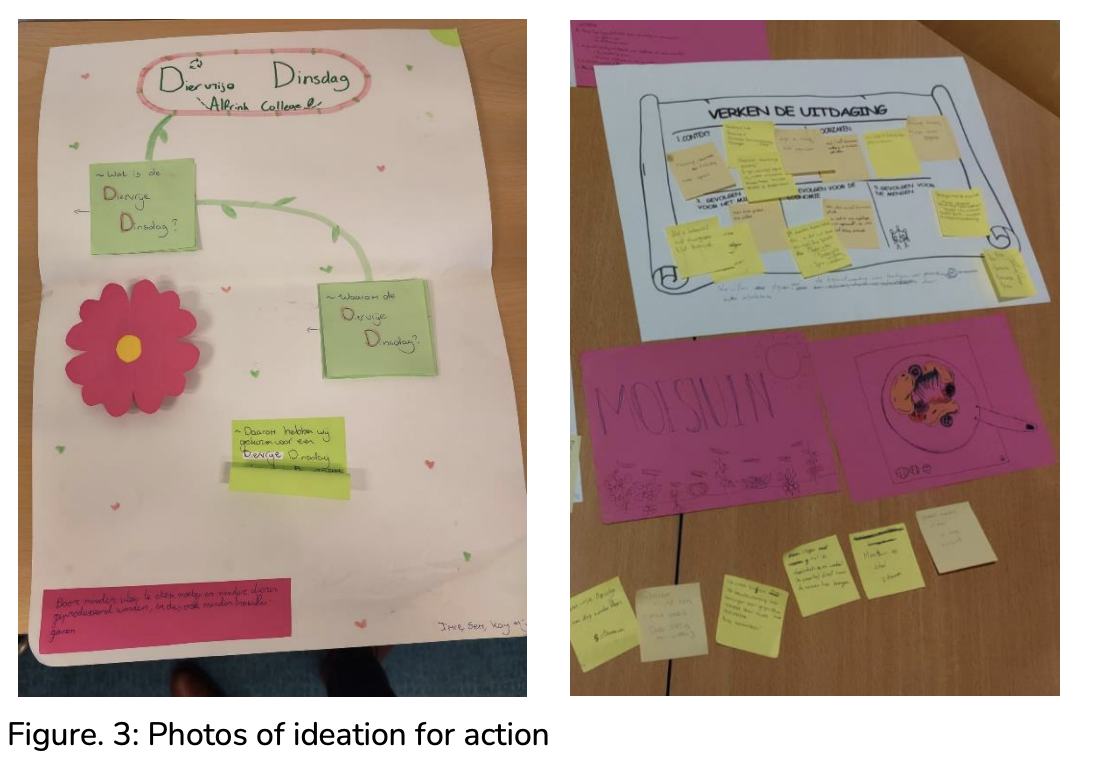Project Description:
Many schools are trying to incorporate healthy and sustainable food in school life, but if this is done in a more holistic manner, it can be more effective in the long term.
The RE-TASTY project embraces an innovative idea of bringing together the Whole School Approach with citizen science to re-think the school food system and bring changes in a participatory way. In this project, secondary students in The Netherlands will become citizen scientists, research their school food system and propose actions to make it more sustainable and healthy. By involving the students, we aim to empower them and give them a voice so they take an active role in transforming their school’s food system.
Project Type: Kickstarting Grant
Theme: Sustainable Lifestyles, Food
Mentor:Patricia Barciela
RE-TASTY –A citizen science project on school food systems in The Netherlands
RE-TASTY, short for Research-Transformative Actions for Sustainability Together with Youth, is a pioneering initiative aimed at helping secondary schools in The Netherlands transform their food systems into healthier and more sustainable environments. Central to the project is the active involvement of students in driving these changes. The core team comprises Maria Neocleous Maliotou as the coordinator, Dr. Valentina Tassone from the Education and Learning Sciences Group at Wageningen University as the project advisor, and Ester Klein Hesselink, an expert in outdoor education. Prof. Arjen Wals from Wageningen University also provided invaluable expertise for the project.


Figure. 2: Photos from the co-creation phase during the implementation of RE-TASTY
RE-TASTY uniquely combines the Whole School Approach with citizen science. Adapted to this initiative, the Whole School Approach focuses on healthy and sustainable food practices, resulting in the Whole School Food Approach framework (Fig. 1). This framework enables students, as citizen scientists, to comprehensively examine their school food systems.
The project’s website (www.retasty.nl) played a key role in its early stages, serving as a communication tool to introduce the initiative to stakeholders and promote the use of citizen science in secondary schools. Beyond communication, the website functions as a repository of knowledge and resources related to the project’s objectives and activities.
Student Involvement
The project was implemented by Green Teams in five secondary schools located in Amsterdam and Zoetermeer. Students engaged in data collection by interviewing various stakeholders within their school communities, including management, teachers, fellow students, school canteen staff, local residents, and nearby food businesses.
In some cases, a more collaborative citizen science approach was adopted, with students participating in the initial stages of research. They contributed to the creation of sub-research questions and the development of data collection tools (Fig. 2).
Following data collection, students analysed their findings. They proposed actionable solutions to create healthier, more sustainable school food environments (Fig. 3). This iterative process empowers students and ensures the project’s sustainability. Schools can repeat the project annually or biennially, using longitudinal data to monitor and implement changes over time. Additionally, data from multiple schools will be aggregated to inform scientific research and policymaking at a broader scale.

Impact and Reflections
RE-TASTY is significant because it positions students as citizen scientists within their school ecosystems, enabling them to make tangible contributions to science and policy. By participating in research, students gain valuable skills, adopt a holistic perspective, and become agents of change for a healthier, more sustainable future.
This sentiment is echoed by Trine Lindström, a teacher and Sustainability Coordinator at DENISE (De Nieuwe Internationale School Esprit) in Amsterdam:
”The RE-TASTY program is important because students learn skills and how they can conduct real research to make their school more sustainable.
Support and Future Aspirations
RE-TASTY would not have been possible without the support of IMPETUS, which provided financial backing as well as foundational citizen science knowledge, tools, and mentoring to launch this pilot project. These initial pilots have yielded valuable insights and experience, laying the groundwork for the further development of RE-TASTY.
Looking ahead, the project seeks additional funding and collaborations within The Netherlands and beyond to ensure its sustainability and expand its reach. By empowering young people to shape their school food systems, RE-TASTY envisions a future where healthier, more sustainable practices become the norm in schools and communities.
Let me know if you’d like to adjust the tone or content further!
References
Wals, A.E.J., Mathie, R. G., 2022. Whole school responses to climate urgency and related sustainability challenges – A perspective from Northern Europe. Encyclopedia of Educational Innovation, p. 1-8. https://doi.org/10.1007/978-981-13-2262-4_263-2



